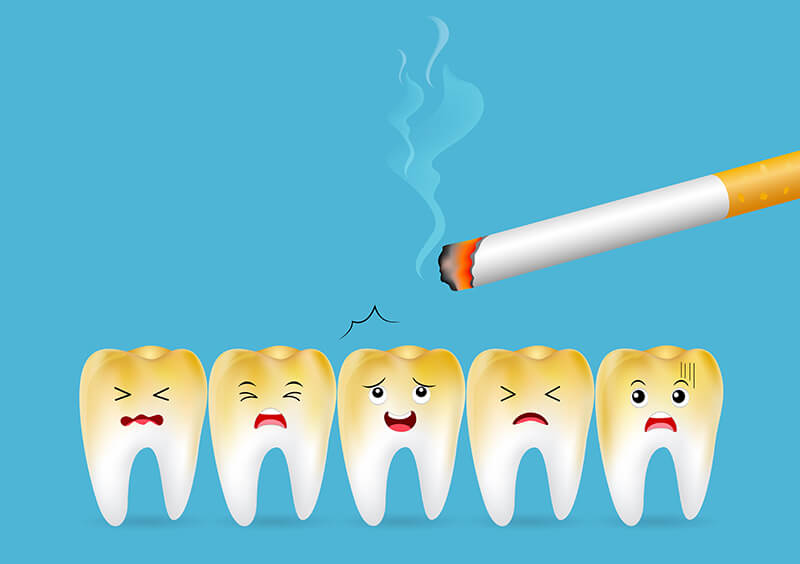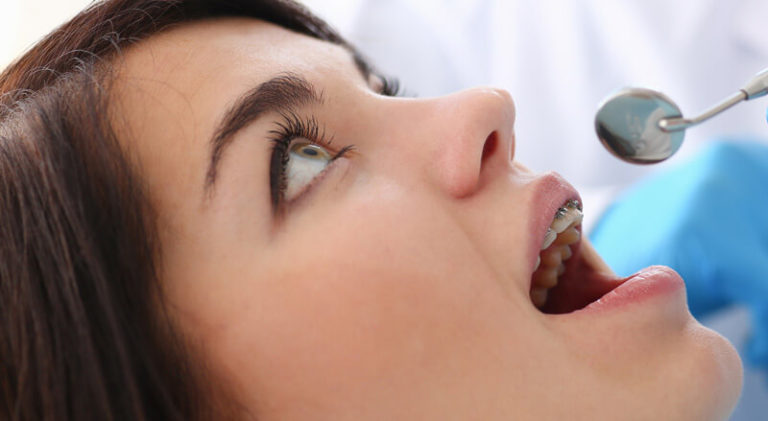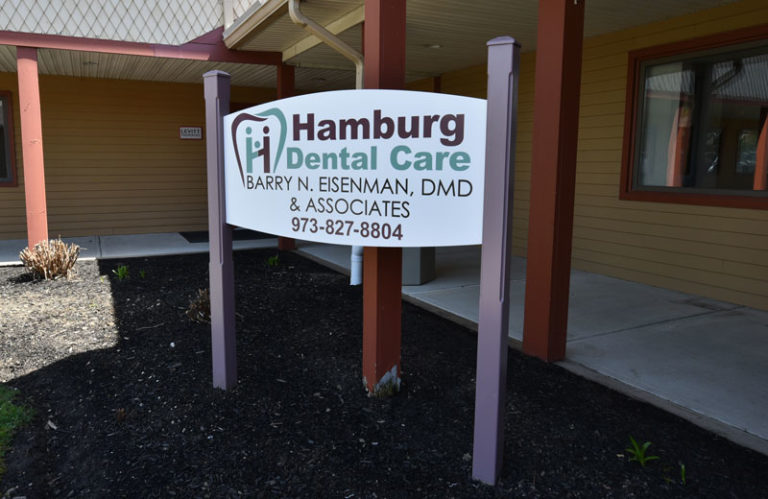Over the years, education about the dangers of tobacco use has increased. There is more awareness about the damaging effects of smoking on overall health. Studies have proven that smoking harms the entire body including our oral and dental health.
While much information about tobacco use focuses on the lungs and cardiovascular system, smoking can cause serious problems and damage to teeth and gums.
How Tobacco use Affects Dental Health
There are many oral health problems that smoking contributes to. Among them are bad breath, discoloration of teeth, inflammation of the saliva glands, gum and jawbone loss, and leukoplakia development in the mouth tissue.
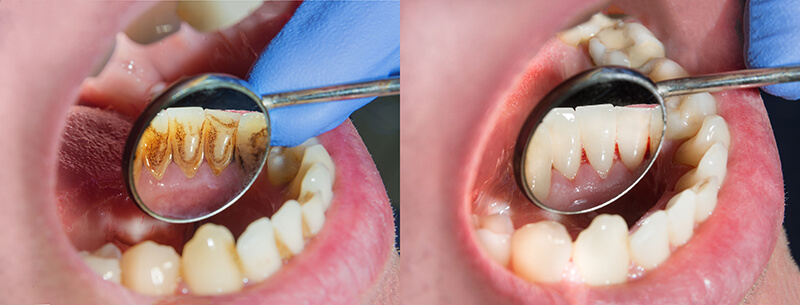
Tobacco use also promotes poor healing after dental procedures. Common procedures such as tooth removal or dental implants take longer to heal in patients who are regular smokers. Smokers are also at a higher risk of oral cancer.
Why Do People Continue to Smoke?
With all this risk, why would anyone keep smoking? Part of the problem is lack of knowledge about everything else smoking damages aside from the lungs.
Many younger people think their lungs can take a few years of damage but have no idea of its long-term effects on oral health.
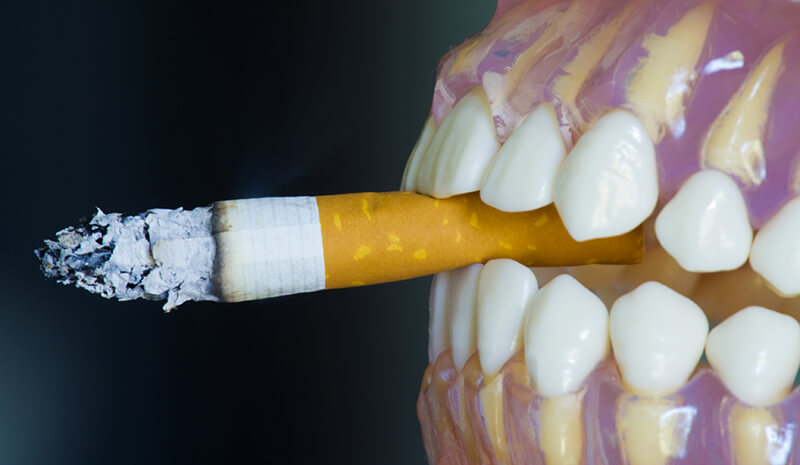
The other problem is addiction; once people regularly smoke the nicotine addiction kicks in. Being addicted to nicotine makes it very hard to quit smoking.
Finally, the damage is not immediate. Smoking effects build up over time, so the change is gradual. Most people don’t realize the change until one day they look at a photo of their formerly white smile or their teeth begin falling out.
Where the Damage Builds Up in Your Mouth
Smoking and tobacco use interfere with the health of your gums and soft tissue. It exposes your mouth to additional bacteria often resulting in tooth decay and loss.
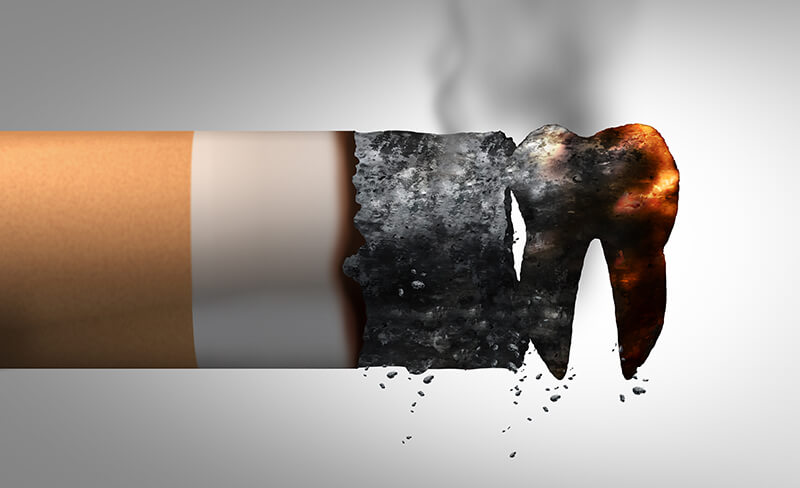
Over time, gum damage affects tissue regeneration, increases infections in gums, and slows circulation to the gum tissue. Unsurprisingly, nicotine damage builds up in your mouth and leads to decay.
Pipe smoking and cigars aren’t much better as an alternative to cigarettes or chewing tobacco. Medical research studies found pipe smokers suffered similar damage to the jaw and mouth as regular smokers.
Can Smoking Damage be Reversed?
Many of the above side effects and damage can be reversed by stopping the use of tobacco products. The body has an amazing ability to start recovery the day one stops using tobacco and smoking. Many bio-systems within the mouth increase their ability to heal each day at the cellular level.
The changes won’t be seen immediately, especially after years of smoking. But a dentist or a trained dental assistant can notice the improvements within a few months.
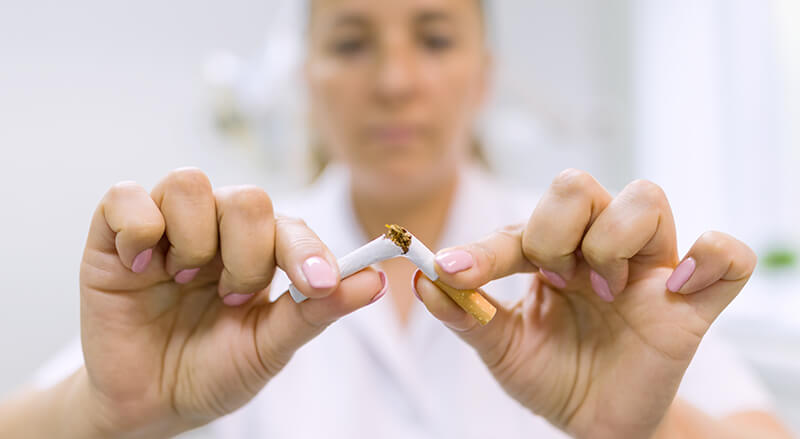
Even those who can’t quite completely stop but make a marked reduction in tobacco use will see some improvement.
How Do I Find a Dentist Who Can Help Me with Damage from Smoking?
Most dentists are aware of the effects of tobacco damage in the mouth. They see it every day.
If you have questions about how smoking is affecting you, don’t be afraid to ask. Sometimes the best learning comes from a good, old-fashioned, face-to-face conversation during an exam.
The right dentist and proper care at home can help you improve your dental health, reverse the damage of long-term smoking, and even stop discoloration.
Contact us for more information about reversing the signs of oral health issues related to tobacco use.

